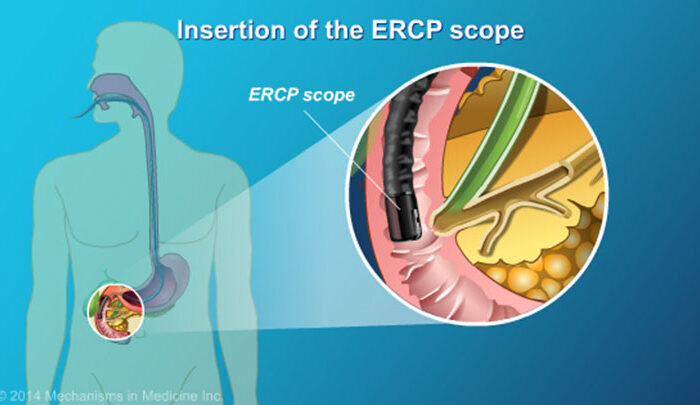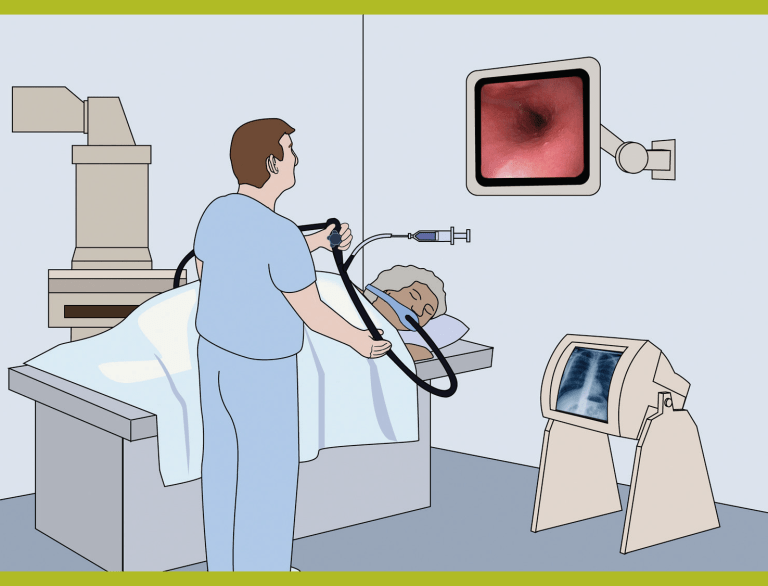
WHY IS AN ERCP PERFORMED?
ERCP is most commonly performed to diagnose conditions of the pancreas or bile ducts, and is also used to treat those conditions. It is used to evaluate symptoms suggestive of disease in these organs, or to further clarify abnormal results from blood tests or imaging tests such as ultrasound or CT scan. The most common reasons to do ERCP include abdominal pain, weight loss, jaundice (yellowing of the skin), or an ultrasound or CT scan that shows stones or a mass in these organs.
ERCP may be used before or after gallbladder surgery to assist in the performance of that operation. Bile duct stones can be diagnosed and removed with an ERCP. Tumors, both cancerous and noncancerous, can be diagnosed and then treated with indwelling plastic tubes that are used to bypass a blockage of the bile duct. Complications from gallbladder surgery can also sometimes be diagnosed and treated with ERCP.
In patients with suspected or known pancreatic disease, ERCP will help determine the need for surgery or the best type of surgical procedure to be performed. Occasionally, pancreatic stones can be removed by ERCP.
Before the Procedure
Your stomach must be empty, so you should not eat or drink anything for approximately 8 hours before the examination. Your physician will be more specific about the time to begin fasting depending on the time of day that your test is scheduled.
Your current medications may need to be adjusted or avoided. Most medications can be continued as usual. Medication use such as aspirin, Vitamin E, non-steroidal anti-inflammatories, blood thinners and insulin should be discussed with your physician prior to the examination as well as any other medication you might be taking. It is therefore best to inform your physician of any allergies to medications, iodine, or shellfish. It is essential that you alert your physician if you require antibiotics prior to undergoing dental procedures, since you may also require antibiotics prior to ERCP.

WHAT CAN BE EXPECTED DURING THE ERCP?
Your throat will be sprayed with a local anesthetic before the test begins to numb your throat and prevent gagging. You will be given medication intravenously to help you relax during the examination. While you are lying in a comfortable position on an X-ray table, an endoscope will be gently passed through your mouth, down your esophagus, and into your stomach and duodenum. The procedure usually lasts about an hour, but this may vary depending on the planned intervention. The endoscope does not interfere with your breathing. Most patients fall asleep during the procedure or find it only slightly uncomfortable. You may feel temporarily bloated during and after the procedure due to the air used to inflate the duodenum. As X-ray contrast material is injected into the pancreatic or bile ducts, you may feel some minor discomfort.